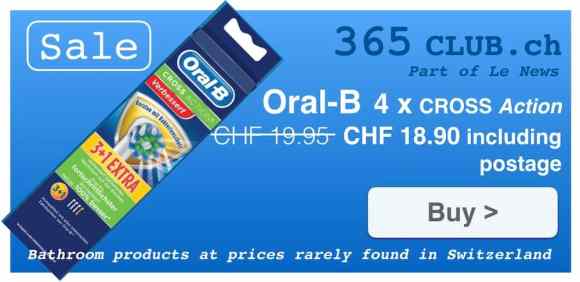A recent study by Interpharma and Santésuisse shows how rapidly drug prices have risen in Switzerland over the 10 years to 2020. © Artemiy Sobov | Dreamstime.comBetween 2010 and 2020, medicine prices have risen by nearly 37% in Switzerland. In addition, the cost of basic health insurance has risen at 3 times the rate of GDP over the same period. There are three main reasons for high Swiss drug prices according to the report: too many generic drugs, excessive margins and high factory prices. Only 23% of medicines sold in Switzerland are generic. The same percentages in the UK (85%), Germany (82%) and the Netherlands (76%) are all far higher. The OECD average is 52%. Generics are far cheaper than their branded equivalents. For example, branded Paracetamol in Switzerland
Topics:
Investec considers the following as important: Cost of living Switzerland, Drug prices Switzerland, Editor's Choice, health, Personal finance
This could be interesting, too:
Investec writes The global brands artificially inflating their prices on Swiss versions of their websites
Investec writes Swiss car insurance premiums going up in 2025
Investec writes The Swiss houses that must be demolished
Investec writes Swiss rent cuts possible following fall in reference rate
A recent study by Interpharma and Santésuisse shows how rapidly drug prices have risen in Switzerland over the 10 years to 2020.

Between 2010 and 2020, medicine prices have risen by nearly 37% in Switzerland. In addition, the cost of basic health insurance has risen at 3 times the rate of GDP over the same period.
There are three main reasons for high Swiss drug prices according to the report: too many generic drugs, excessive margins and high factory prices.
Only 23% of medicines sold in Switzerland are generic. The same percentages in the UK (85%), Germany (82%) and the Netherlands (76%) are all far higher. The OECD average is 52%.
Generics are far cheaper than their branded equivalents. For example, branded Paracetamol in Switzerland (Dafalgan) is 47% more expensive than an unbranded equivalent. Part of the problem is that retailers benefit from pushing branded products. In an example in the report, a pharmacy makes CHF 13.59 on a box of Dafalgan but only CHF 9.09 on an equivalent box of unbranded Paracetamol.
If customers developed a habit of always requesting generics in prescriptions and at pharmacies, it could add up to a significant collective saving.
In addition to a lack of generics, Switzerland suffers from inflated factory prices. For example, a packet of the drug Atorvastatin, a statin taken to lower levels of blood lipids, costs 8 times more in Switzerland than it does in Belgium.
The report recommends changes that could cut healthcare costs in Switzerland by CHF 780 million a year. This would cut health insurance premiums by 2.3%, a saving of roughly CHF 85 per person per year.
To achieve these savings would require reduced retail prices through a European price reference system that calculated a reference price based on other European nations (-350 million), reduced retail margins (-330 million) and annual reviews of which drugs are to be covered by compulsory health insurance (-100 million).
The report also recommends granting health insurance companies greater opportunity to challenge prices.
More on this:
Santésuisse report (in French) – Take a 5 minute French test now

For more stories like this on Switzerland follow us on Facebook and Twitter.
